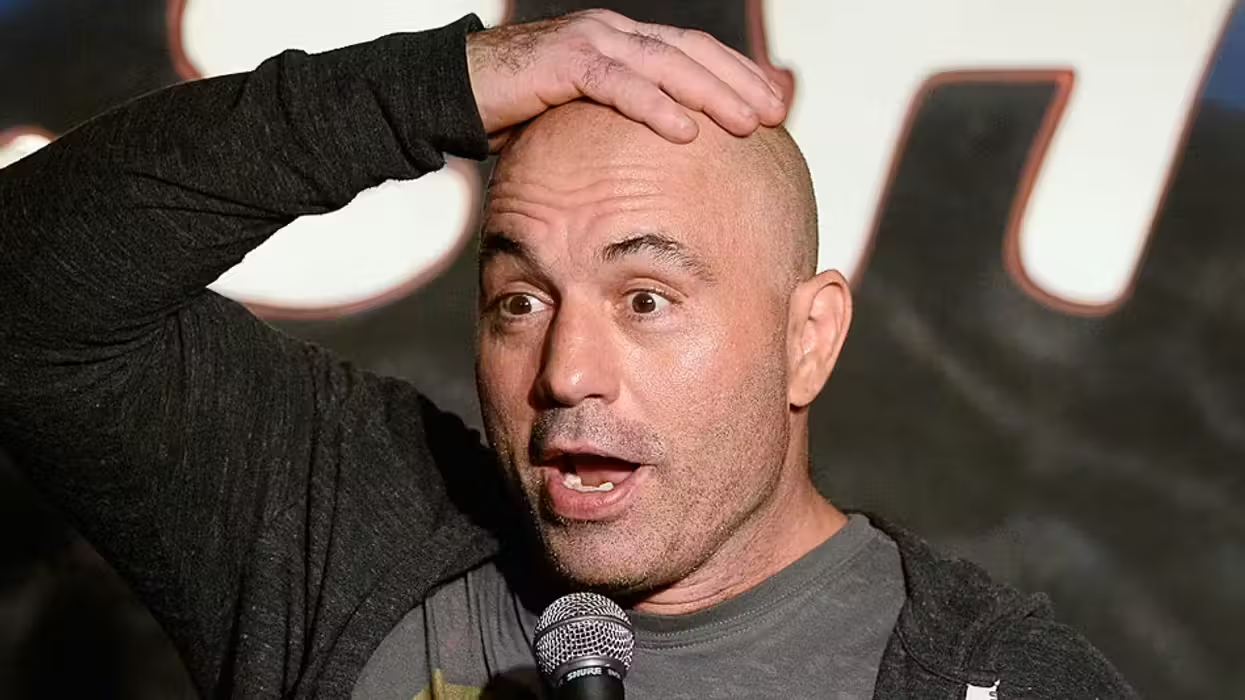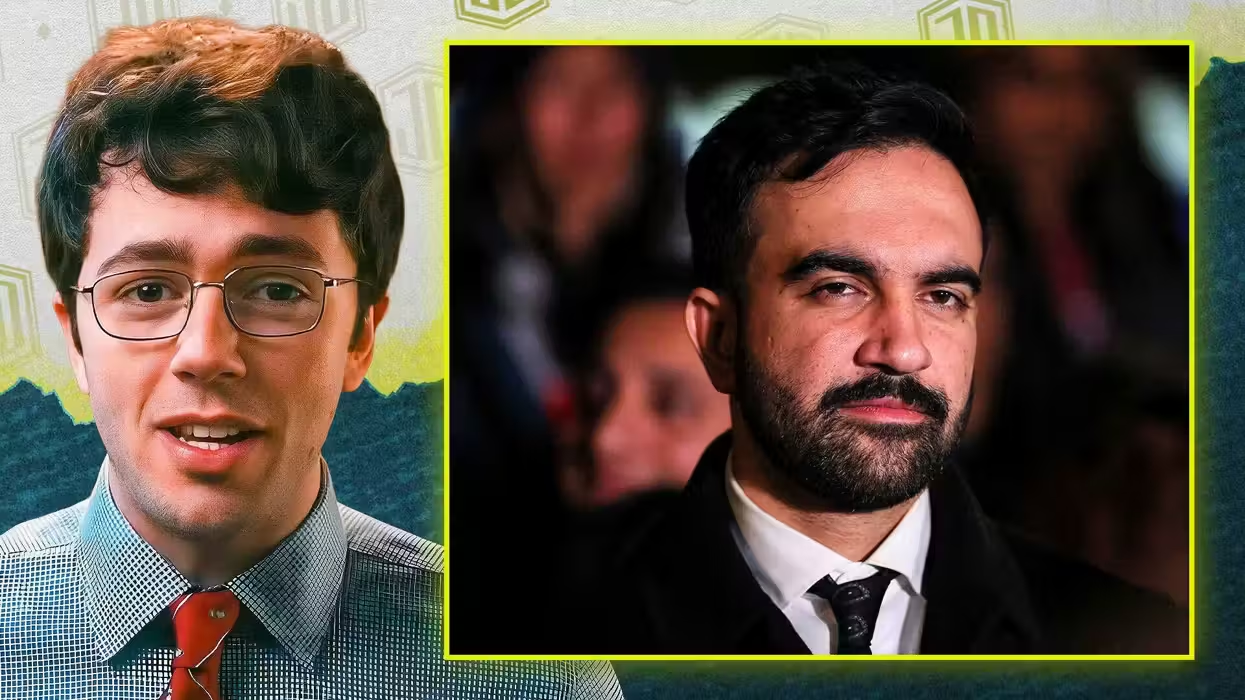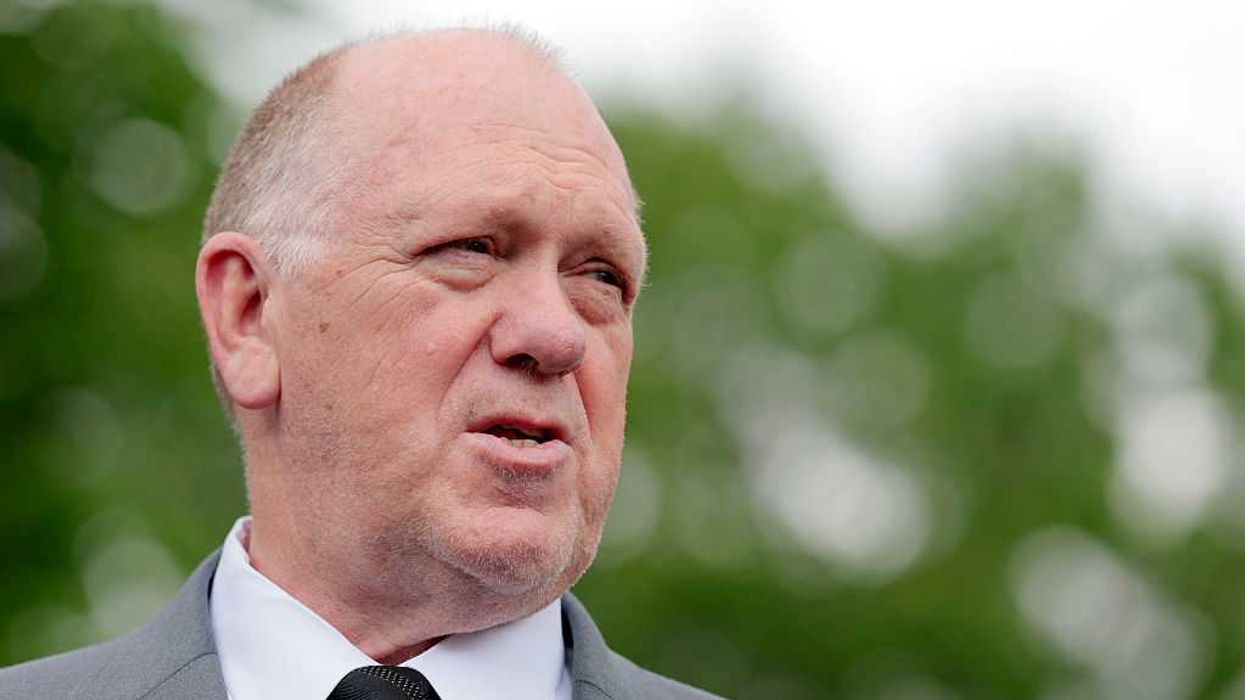
© 2025 Blaze Media LLC. All rights reserved.
Gov't Says All U.S. Health Care Facilities Need to Be Ready for Ebola: Here's the Checklist
September 15, 2014
"Be prepared for managing patients with infectious diseases."
While government officials and top doctors have maintained that they don't think Ebola will become a widespread issue in the United States, the Centers for Disease Control and Prevention is recommending all health care facilities in the country "be prepared for managing patients with infectious diseases such as Ebola virus disease."
 Men walk past Ebola prevention posters in a suburb of Dakar on September 11, 2014. A Guinean student who was Senegal's only confirmed case in the deadly Ebola epidemic has recovered, the health ministry said on September 10. Senegal became the fifth country affected by the West African outbreak when the student crossed the border just before it closed on August 21. (AFP PHOTO / SEYLLOU (SEYLLOU/AFP/Getty Images)
Men walk past Ebola prevention posters in a suburb of Dakar on September 11, 2014. A Guinean student who was Senegal's only confirmed case in the deadly Ebola epidemic has recovered, the health ministry said on September 10. Senegal became the fifth country affected by the West African outbreak when the student crossed the border just before it closed on August 21. (AFP PHOTO / SEYLLOU (SEYLLOU/AFP/Getty Images)
Issuing a facility preparedness "checklist," the CDC recommended that facilities begin reviewing their infection control policies and procedures now.
"Facilities should also define the individual work practices that will be required to detect the introduction of a patient with [Ebola virus disease] or other emerging infectious disease, prevent spread and manage the impact on patients, the facility and staff," the CDC wrote.
Here are some of the recommendations straight from the checklist:
Begin education and refresher training for [health care professionals] on [ebola virus disease] signs and symptoms, diagnosis, how to obtain specimens for testing, appropriate PPE use (including putting on and taking off PPE), triage procedures (including patient placement), HCP sick leave policies, how and to whom EVD cases should be reported, and procedures to take following unprotected exposures (i.e., not wearing recommended PPE) to suspected EVD patients at the facility.
Ensure laboratories review procedures for appropriate specimen collection, transport, and testing of specimens from patients who are suspected to be infected with Ebola virus.
Review policies and procedures for screening and work restrictions for exposed or ill HCP, and ensure that HCP have ready access to medical consultation, including via telephone.
Designate points of contact within the facility responsible for communicating with public health officials and providing internal updates for HCPs and volunteers.
See the full list of recommendations for health care facilities on the CDC's website.
The historic outbreak of the Ebola virus has already sickened more than 4,366 and killed nearly 2,100 people in West Africa.
One of the recent victims was Dr. Olivet Buck, a physician working in Sierra Leone. The country is accusing the World Health Organization of being "sluggish" in facilitating an evacuation of Buck.
At a news conference Monday, a government official read a statement saying that the Buck is the second Sierra Leonean doctor to die because negotiations on evacuation had dragged on. Dr. Sheik Humarr Khan was being considered for evacuation when he died of the disease in July.
The World Health Organization responded Monday that it can only evacuate its own staff and that, given the number of health workers becoming infected, the solution is not to evacuate everyone.
As for one of the American doctor's being treated in the U.S. after contracting the disease, Dr. Rick Sacra is continuing to improve at the Nebraska Medical Center and had an appetite for ice cream over the weekend. Debbie Sacra, the 51-year-old doctor's wife, said the ice cream helped her husband exceed doctors' orders for him to start eating at least 1,000 calories a day.
(H/T: Washington Examiner)
—
The Associated Press contributed to this report.
Want to leave a tip?
We answer to you. Help keep our content free of advertisers and big tech censorship by leaving a tip today.
Want to join the conversation?
Already a subscriber?
more stories
Sign up for the Blaze newsletter
By signing up, you agree to our Privacy Policy and Terms of Use, and agree to receive content that may sometimes include advertisements. You may opt out at any time.
Related Content
© 2025 Blaze Media LLC. All rights reserved.
Get the stories that matter most delivered directly to your inbox.
By signing up, you agree to our Privacy Policy and Terms of Use, and agree to receive content that may sometimes include advertisements. You may opt out at any time.






